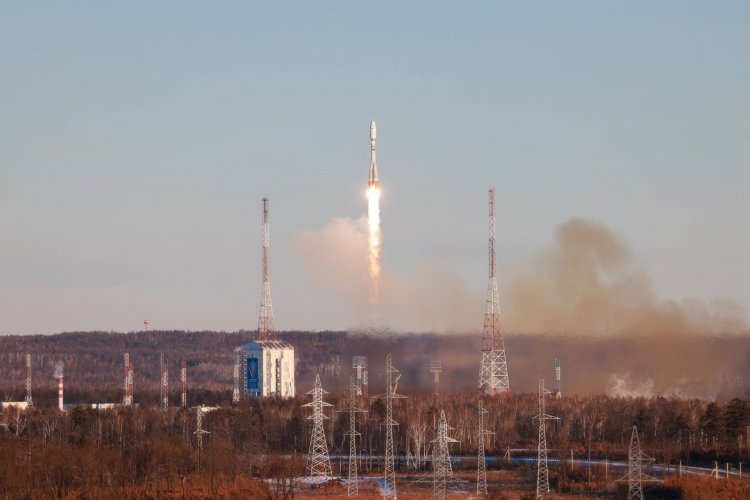Russian rocket launches Iranian satellites into orbit

A Russian rocket carrying a payload of satellites into orbit – including two from Iran – blasted off successfully, Russia’s Roscosmos space agency said, in a move seen as reflecting the growing cooperation between Moscow and Tehran.
The Soyuz-2.1 spacecraft lifted off as scheduled from the Vostochny Cosmodrome launchpad in far eastern Russia and put its payload into a designated orbit nine minutes after the launch.
Roscosmos said that two Russian Ionosfera-M satellites – designed to monitor the space weather around Earth – and 53 small satellites, including two from Iran, were placed into orbit successfully.
Among the 53 small satellites, the two Iranian satellites were identified as the Kowsar, a high-resolution imaging satellite, and Hodhod, a small communications satellite. A Russian-Chinese student satellite, Druzhba ATURK, was also placed into orbit.
The Iranian satellites are the first launched on behalf of the country’s private sector, with the Kowsar manufactured by the Omidfaza company, which began designing the satellite in 2019.
The Kowsar has an expected lifespan of three years and the Hodhod should operate for four years.
Last September, Iran successfully launched a satellite into orbit with a carrier built by Iranian scientists.
The satellite and space industry is expanding rapidly in new directions, driven by the global demand for more connectivity, data and services. It is averaging a growth rate of 9% per annum – a figure significantly above the growth rate of global GDP.
Iran's space launchers can carry satellites weighing up to 200 kg and place them in orbit. Since 2023, the country has been able to place its satellites in low earth orbit at a distance of 450 to 2000 km.
Iran is currently building the largest space base in West Asia in the south of the country, the first phase of which will be completed by the end of the current Persian year in March 2024.















